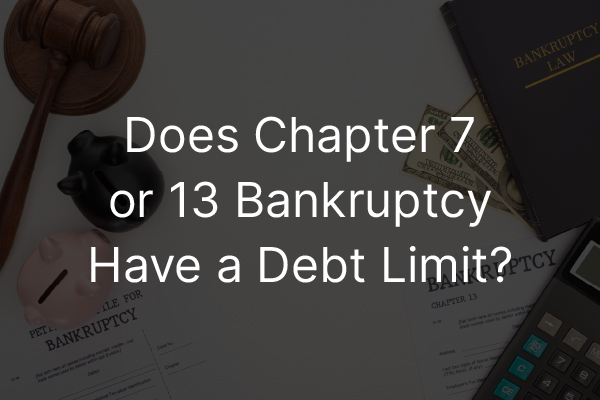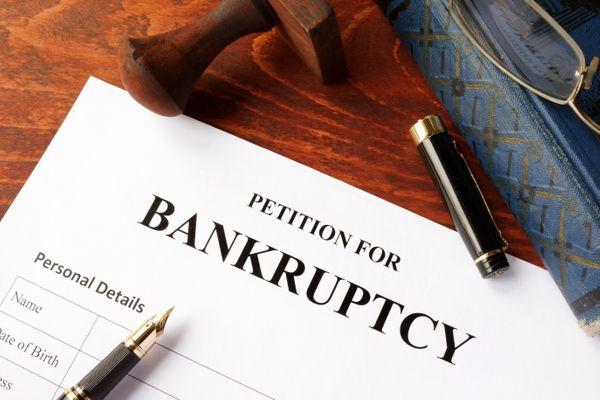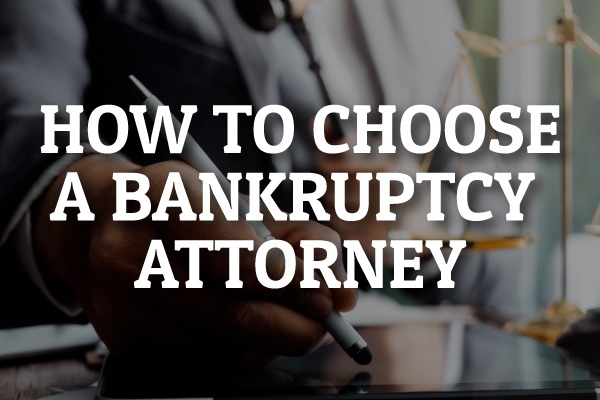What Is Bankruptcy?
 When people are in financial turmoil and have no other options, filing for bankruptcy can help give them the break they need to get a fresh start. What is bankruptcy? How does it work and what are the effects once the term of bankruptcy is over? This article aims to answer these questions to help people get back on their feet and take control of their future.
When people are in financial turmoil and have no other options, filing for bankruptcy can help give them the break they need to get a fresh start. What is bankruptcy? How does it work and what are the effects once the term of bankruptcy is over? This article aims to answer these questions to help people get back on their feet and take control of their future.
What Is Bankruptcy?
Bankruptcy is a federal legal process that was created to aid individuals, spouses, and businesses to start over financially. This is accomplished by either discarding or making arrangements to repay a debt that has grown too big for them to handle.
Why Would Someone File for Bankruptcy?
Bankruptcy was designed to help individuals deal with unmanageable debt by creating a “discharge.” A discharge is an official order from a bankruptcy court that prohibits creditors from continuously harassing and attempting to collect a debt that is against the individual, household, or business. Also known as a bankruptcy injunction, a discharge is permanent, meaning that even when the bankruptcy ends, those creditors cannot return, asking for the money they were originally owed.
However, a discharge does not apply to all debt. Taxes, child support, and spousal support will still need to be paid by the individual. This is because these debts are considered a duty of the individual to pay, and therefore cannot be wiped from their slate. An individual may be able to get a different payment plan to help aid them in making these payments, but they will never be able to rid themselves of them.
How Does Bankruptcy Work?
Bankruptcy is overseen by bankruptcy courts that follow the laws outlined within the Bankruptcy Code. Each federal district within the United States of America has a bankruptcy court, or if the district is larger, they may have multiple courthouses. These courts are run by bankruptcy judges that are appointed to 14-year terms by federal judicial committees.
Requirements for Bankruptcy
Due to the complex nature of bankruptcy, it is highly recommended that those seeking to file for bankruptcy seek out a bankruptcy attorney. One will also need to meet the following requirements and conditions:
- Prove that your debts are too much for you to handle
- Complete credit counseling with a government-certified credit counselor
- With your bankruptcy lawyer, you will need to decide whether you are filing for Chapter 7 or Chapter 13 bankruptcy.
What Is Chapter 7 Bankruptcy?
Chapter 7 bankruptcy is also called “straight bankruptcy.” Under Chapter 7 bankruptcy, the individual filing for it will be required to allow a federal court trustee to oversee the sale of any assets that are not exempt. This could include jewelry or electronics that are not essential to work-related activities. The funds from these sales go directly towards paying the creditors that are attempting to receive payment from the individual. The balance of any debt owed after the sales have gone through and the creditors have been paid is wiped clean from the individual’s slate.
What Is Chapter 13 Bankruptcy?
Unlike Chapter 7 bankruptcy, Chapter 13 bankruptcy does not require the individual or business to sell their property to pay off some of the debt. Instead, your attorney and the court will discuss a 3- to 5-year payment plan. Depending on negotiations, the individual may be expected to pay all or only part of his or her debt during that period. Once the agreed plan has been completed, the remaining debt is dismissed.
Consequences of Bankruptcy
While it is true that bankruptcy helps individuals, couples, and businesses gain a fresh start, it does carry long-term effects. For one, individuals can lose property as a result of trying to pay back the debt that is owed of them. This could mean selling real-estate, jewelry, valuable furniture, or expensive electronics.
Another consequence is that bankruptcy does not protect individuals that may have co-signed with you. For example, a parent who is helping a child by co-signing an auto loan may still be required to pay part of the remaining debt.
The biggest consequence, though, is the effect on your credit score. Bankruptcy hangs on your credit report for up to 10 years and may cause potential lenders to decline to offer you credit. Even if a creditor were to offer you a loan, the interest rates may be significantly higher or the terms less favorable for you.
Find an Attorney Who Can Help You Navigate the Complexities of Bankruptcy
Bankruptcy may be the right option for you or your family to help overcome massive debt. You will want a dedicated attorney to guide you through the process and ensure that your best interests are being pursued. Alison Grant, Attorney At Law, can help you get your life back in order when going through bankruptcy. Her expert guidance and negotiation skills can help you get the aid you need and give you the ability to set your path towards a brighter and financially healthy future. Contact Alison Grant, Attorney at Law, today for more information about her services and to receive a consultation.






